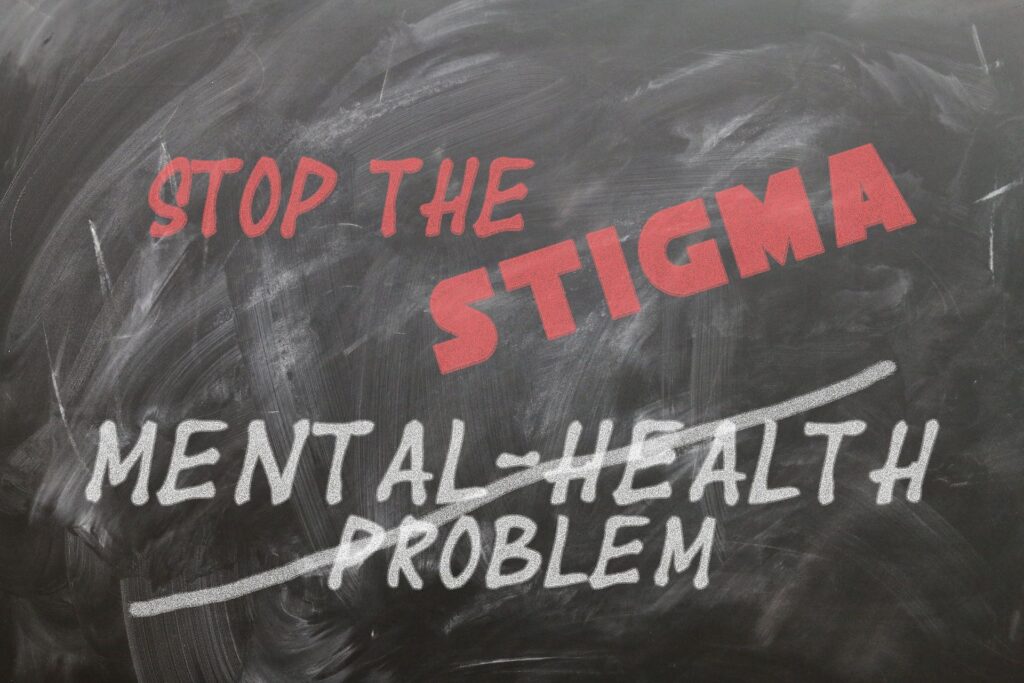
Dr. Alyssa Parker, CSI Litigation Consultant, is featured on the Best’s Insurance Professional Resources podcast discussing the impact of pandemic-related mental stress on witnesses. Click the image to view the episode.

Following is an edited transcript of the interview.
This is John Czuba for Best’s Insurance Professional Resources. We’re here with Alyssa Parker. Dr. Parker is the litigation consultant at Courtroom Sciences, which is a full-service national litigation firm.
Q: Could you tell our audience briefly about your background before we start?
A: Sure. My background is that I actually have a PhD in clinical psychology and worked for a number of years as a practicing clinician before entering the field of litigation as a consultant.
Q: Thanks, Dr. Parker. Today, we’re going to be discussing the impact of the coronavirus pandemic on mental health litigation. Dr. Parker, why don’t we start out with having your define mental health?
A: Sure. Mental health, at the most basic level, is simply someone’s well-being. You can have good mental health or poor mental health. Poor mental health is typically when some preexisting emotions or genetic conditions are negatively affecting someone’s well-being or daily functioning in some capacity.
When I think of mental health, I think of a continuum. You could have mild to severe when you have mental health issues. Even mild ones would impact day-to-day functioning.
Q: In light of the coronavirus pandemic, what changes have seen in mental health?
A: Mental health issues have gotten significantly worse. It’s not entirely surprising, given the degree of fatigue, and stress, and isolation, and trauma pretty much everyone has experienced to some degree throughout this. The pandemic has also resulted in a lot of polarizing mental states.
A lot of people are not even aware that they’re currently experiencing clinical levels of, let’s say, depression or anxiety, in large part because a lot of us just think, “Gosh, I’m just stressed,” or, “I’m fatigued,” or, “I don’t understand why I can’t snap out of this.”
Q: What are the additional challenges that need to be considered about mental health issues within the context of litigation?
A: Within the context of litigation, the first thing that I think about would be witnesses. Mental health issues could be impacting one or more of your witnesses in a variety of ways.
For some people, mental health issues are impacting… They’re having responses to the case itself or the litigation process. For other people, just issues in their personal life are coming to the table and exacerbating emotions that they are experiencing about the process in general.
The other thing that I think about is that we are all very familiar with the litigation process. Oftentimes, attorneys contact a witness and then a long period of time goes on before they contact them again.
Some witnesses do a great job of compartmentalizing and forgetting about everything. Other witnesses, during that time in-between touches, on behalf of their attorney, start to create their own narratives about what the process is and what it will mean or how it will impact them, further affecting emotions or mental health status.
Q: How should attorneys approach the topic of mental health with their witnesses?
A: I think, first and foremost, it’s important to point out that it’s not the attorney’s responsibility to be diagnosing mental health, but certainly they should be assessing for it in their witnesses.
If that is something that an attorney is not comfortable with, whether that be asking a lot of questions, getting comfortable just talking about emotions or mental health in general, if they’re not comfortable or they don’t feel qualified, then I would suggest reaching out to outside assistance to help with that.
Q: Dr. Parker, as a trained psychotherapist with experience assessing and treating patients, how do you approach evaluating the mental state of a witness?
A: The first thing I do is ask the right questions. As part of asking the right questions, I’m also observing the witnesses when they’re responding. That would be their body language, the way in which they are responding to the questions.
Then, I often give them feedback. That’s, in large part, to make sure that I am identifying the correct emotion or issues and helping the witness become more comfortable in discussing it.
I think the most important thing is that a witness has to be able to express some emotion and for it to be addressed in some capacity before they testify, whether that be at deposition or at trial. Otherwise, these mental health issues and emotion are going be coming out during their testimony which, of course, never works in your favor.
Q: What are the impacts of mental health issues on the testimony of witnesses and case outcomes?
A: I think that witnesses who are experiencing mental health issues are significantly more susceptible to plaintiff attorney techniques, especially things like reptile theory, or they’re more likely to experience an amygdala hijack.
What that is is when the part of your brain that’s responsible for survival instincts, like fight or flight, basically overtakes the part of your brain that’s responsible for more rational thought, judgment, and so on, such that they give bad testimony.
Another way in which mental health impacts witnesses is that if it is not properly assessed and addressed before any preparation takes place, the time and effort that attorneys are putting into preparing their witnesses is, in essence, lost because they are much more likely to forget about or be unable to integrate any of the things that you discussed in the first place.
As you know, especially for deposition testimony, it’s so important. It can make a bad case or a good case go south or a bad case result in a nuclear verdict.
Q: Finally, what can insurance companies that are involved in a litigation do about the issues that you raise?
A: I think the most important thing would be to know when to bring in additional help. Most certainly not every witness needs a significant amount of time and effort spend on mental health issues.
However, if an insurance company has specific concerns about a witness, or their attorneys voice concerns about their witness, or just in general they have a very big case with potentially high exposure, maybe those are great times that it would be important to think about bringing outside help.
The other thing is that people, such as myself, are always available if you just want to talk things out. For example, if you have some general concerns, give us a call and we can help assess what steps could or could not be needed moving forward.
Be confident in achieving superior litigation outcomes. CSI has the expertise, track record, and capabilities to help you win.


